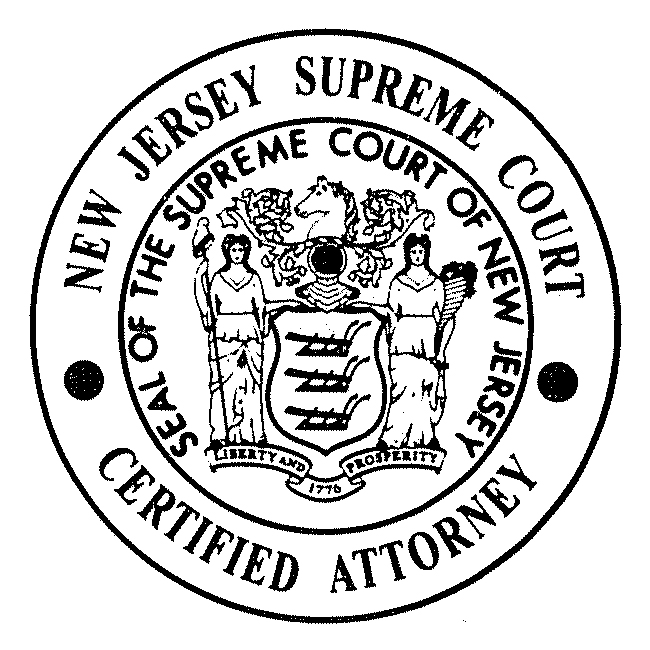Who’s Responsible for a Fall-Related Fracture in a New Jersey Store?

We’ve all seen the yellow cones cautioning about wet floors or the barriers preventing shoppers from wandering into unsafe areas in stores. But what happens when you or a loved one actually suffers a fracture or serious injury from a fall in a store in New Jersey? Who should be held accountable?
The Basics of Premises Liability in New Jersey
Before delving deep, it’s essential to understand the legal principle called ‘premises liability.’ Under New Jersey law, property owners, including store owners, have a duty to maintain a safe environment for visitors. If they neglect this duty, resulting in injury, they may be held legally responsible.
Factors that Determine Liability
In New Jersey, as in many jurisdictions, liability after a fall in a store is determined by the principles of premises liability law. When assessing liability for a fall-related injury, several factors come into play:
1. Duty of Care: This is foundational. Store owners (or operators) owe visitors a duty of care. This means they must maintain a reasonably safe environment and take measures to either remedy or warn about potential hazards.
2. Breach of Duty: For a store to be held liable, it must be demonstrated that they breached their duty of care. This could be through negligence, such as failing to address a spill promptly or not repairing a broken tile.
3. Knowledge of Hazard: It’s important to ascertain whether the store owner or employees were aware of the hazard. The liability can be more clearly established if:
- The store created the hazard.
- The store knew about the hazard but did nothing.
- The hazard existed for such a length of time that the store should have known and addressed it.
4. Direct Causation: Even if a hazard existed and the store was aware of it, it needs to be demonstrated that this specific hazard directly caused the fall. In other words, there needs to be a clear connection between the breach of duty (e.g., wet floor) and the injury sustained.
5. Actual Damages: There should be tangible damages resulting from the fall. This might include medical expenses, lost wages, and pain and suffering.
6. Comparative Negligence: New Jersey follows a ‘comparative negligence’ system, which evaluates the fault of all parties involved. If the injured party is found to be partially at fault (e.g., they were distracted or ignored warning signs), their compensation can be reduced by their percentage of fault. However, they can still receive damages if they’re less than 50% at fault.
7. Condition of the Injured Party: In some cases, the injured party’s physical condition or footwear could be evaluated. For instance, if someone was wearing extremely high heels or had a pre-existing condition making them more prone to falls, it might be considered in assessing liability.
8. Warnings and Signage: If the store provided adequate warnings (like “wet floor” signs) and the injured party ignored them, it could affect liability.
9. Regular Maintenance and Inspection: Stores that can demonstrate regular maintenance routines and inspections may be in a better position to defend against liability claims. Documentation of these routines can serve as evidence that they exercised due care.
Common Scenarios Leading to Falls
Some frequent situations where store owners might be found negligent include:
- Wet or Slippery Floors: This is arguably the most common. Whether it’s because of rain, a recent cleaning, or a spill, wet floors are hazardous. Store owners should promptly address these issues and place warnings until they do.
- Uneven Surfaces: This includes torn carpets, broken tiles, or any irregularities in walking surfaces.
- Poor Lighting: Dim lighting can obscure hazards and make it difficult for visitors to navigate safely.
- Unmarked Steps or Changes in Floor Elevation: These can catch visitors off-guard, especially if there’s no signage warning about them.
Comparative Negligence
It’s important to note that New Jersey follows a ‘comparative negligence’ system. This means that if you’re found partially at fault for your injury (say, you were texting and not paying attention), any compensation you receive might be reduced by your percentage of fault. However, as long as you’re less than 50% at fault, you can still recover damages.
Steps to Take After a Fall
If you or someone you know suffers a fall in a store in New Jersey, following these steps can be essential to ensuring both well-being and legal rights are protected:
1. Seek Medical Attention: Immediately after a fall, it’s crucial to assess yourself for injuries. Even if you feel okay, some injuries, such as concussions or internal injuries, may not manifest immediate symptoms. Always prioritize your health and get a professional medical assessment.
2. Notify Store Management: Inform the store manager or an employee about the incident. Ensure they make a formal report and ask for a copy for your records.
3. Document Everything:
- Photos: Use your smartphone or camera to take clear pictures of the accident scene, focusing on potential causes (like wet floors, obstacles, etc.) and any visible injuries.
- Witnesses: Gather names, phone numbers, and addresses of any witnesses. Their accounts might be crucial later if you pursue a legal claim.
- Incident Reports: If the store creates an incident report, request a copy for your records.
4. Avoid Making Detailed Statements: Be cautious when discussing the incident with store employees or managers. It’s okay to provide facts, but avoid giving opinions or speculations. It’s essential not to admit fault or downplay your injuries.
5. Preserve Evidence: Keep any clothing or personal items in the same condition as they were right after the fall. They might serve as evidence.
6. Seek Legal Counsel: Especially if your injuries are severe, consult with a personal injury attorney familiar with New Jersey’s premises liability laws. They can guide you through the process, advise you on the next steps, and help ensure you receive fair compensation.
7. Refrain from Social Media: Avoid posting details about your fall or injuries on social media platforms. Opposing counsel or insurance agents can use these posts against you.
8. Document Medical Treatments: Keep records of all medical treatments, prescriptions, and any other related expenses. Maintain a diary noting your recovery progress, pain levels, and any other relevant details.
9. Follow Medical Advice: Adhere to any treatments or rehabilitation exercises prescribed by medical professionals. This not only aids in your recovery but also demonstrates your commitment to healing, which can be beneficial if you are pursuing a legal claim.
10. Stay Organized: Keep a dedicated folder or digital file with all related documentation, including medical bills, pharmacy receipts, and correspondence with the store or their insurance company.
By following these steps, you safeguard both your health and potential legal rights after a fall in a New Jersey store. If you believe the store’s negligence caused your injury, consulting with a knowledgeable attorney is always a prudent step.
Contact an Experienced Personal Injury Lawyer at Lombardi & Lombardi for a Free Consultation About Your Case Today
If you or a loved one have suffered a fall-related fracture in a store in New Jersey, determining liability can be complicated. The legal team at Lombardi & Lombardi has the expertise to help navigate the intricacies of premises liability claims, ensuring you receive the compensation you deserve.
Remember, every situation is unique. It’s always recommended to consult directly with professionals who can give advice tailored to your specific circumstances. Contact us today to schedule a consultation. Stay safe and always be aware of your surroundings.






 CALL NOW
CALL NOW